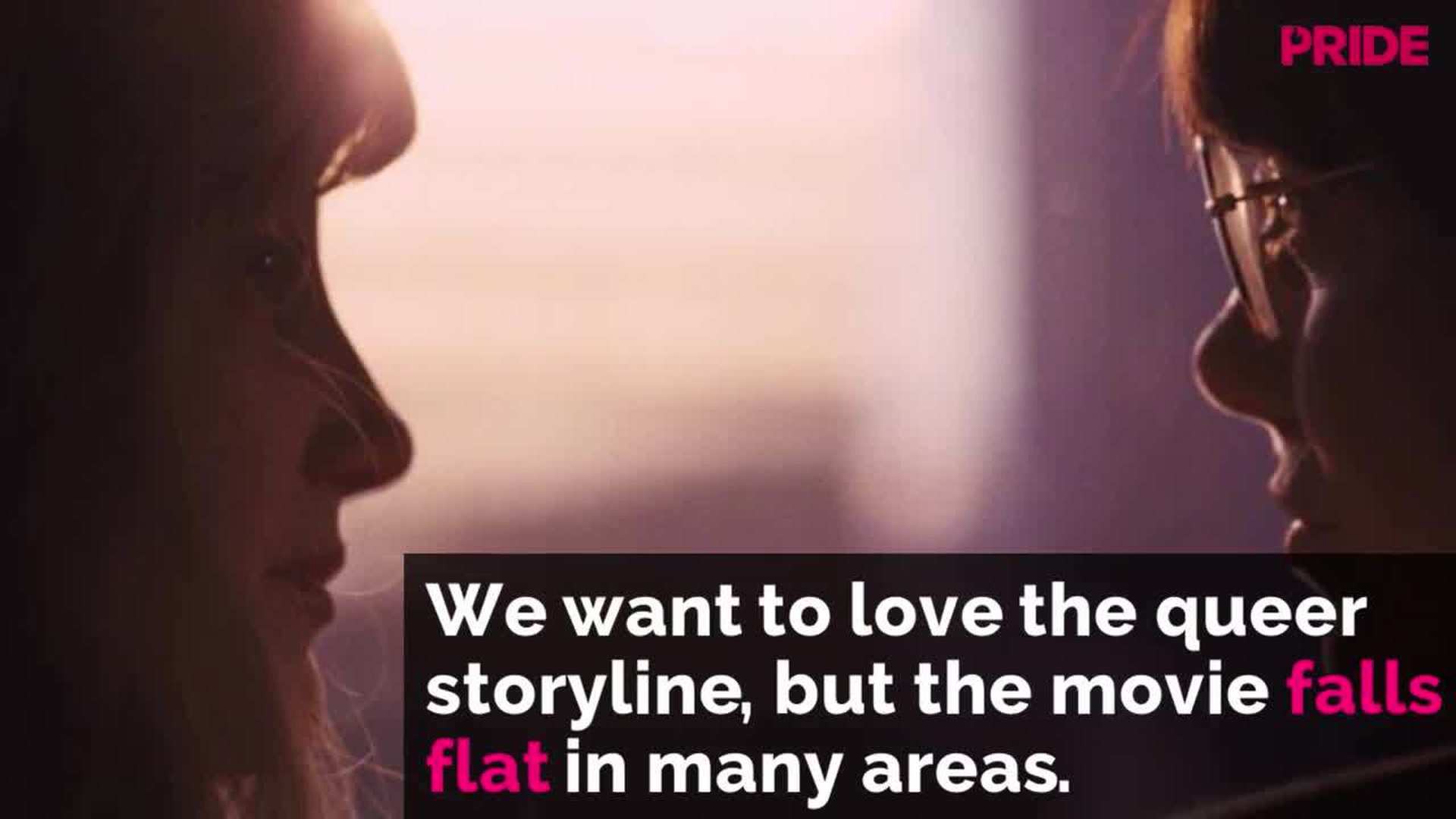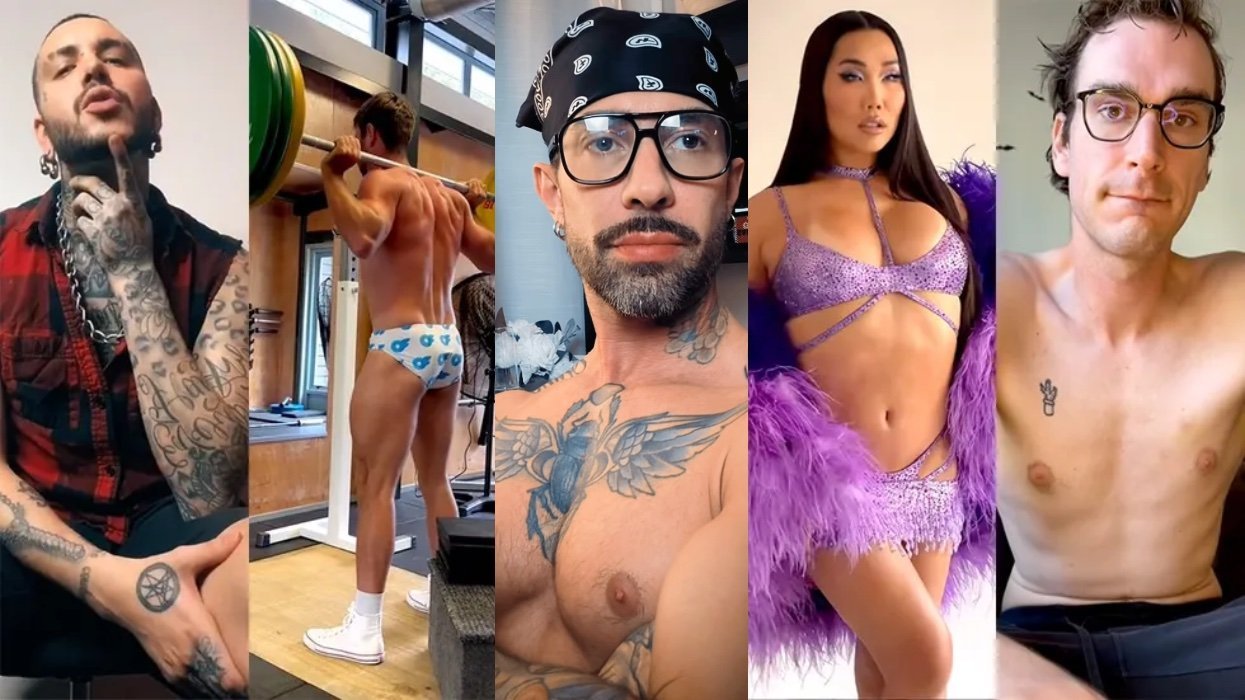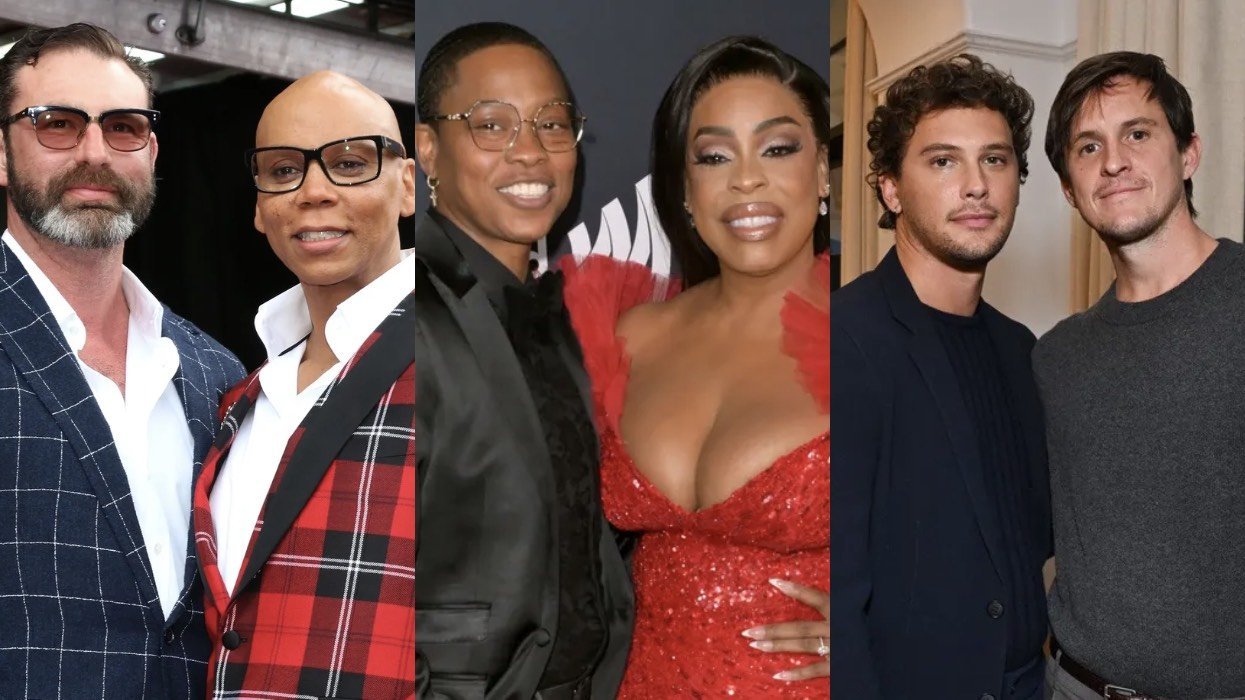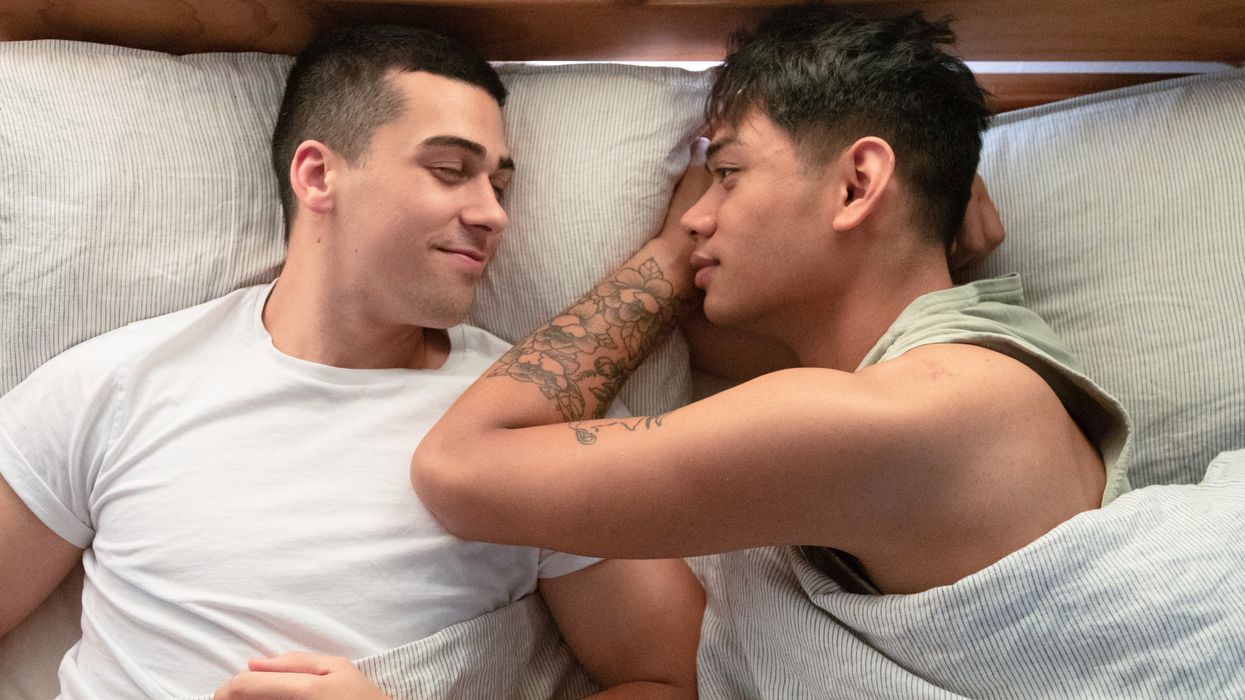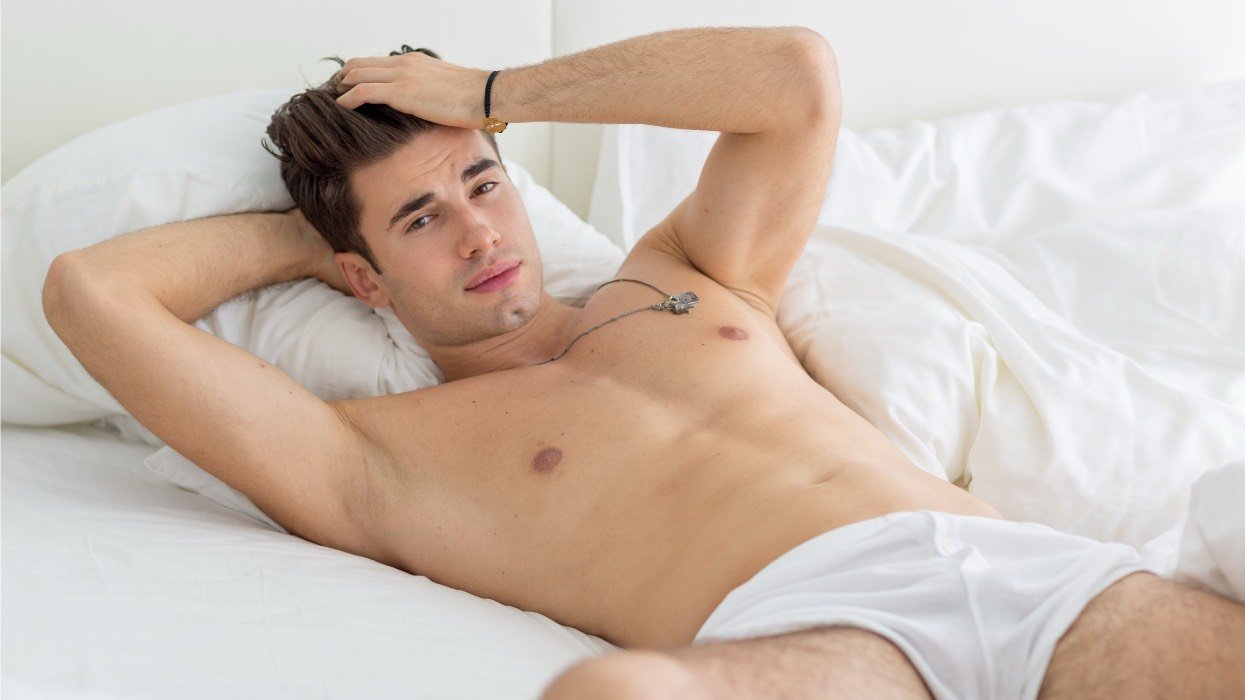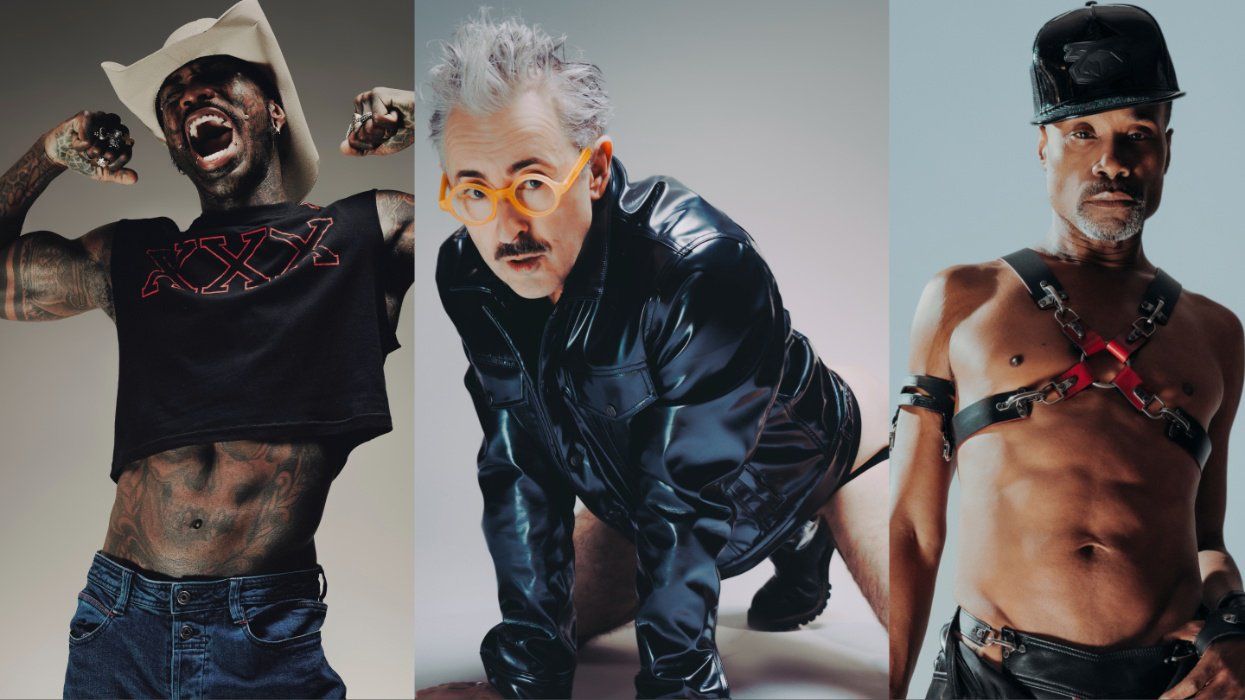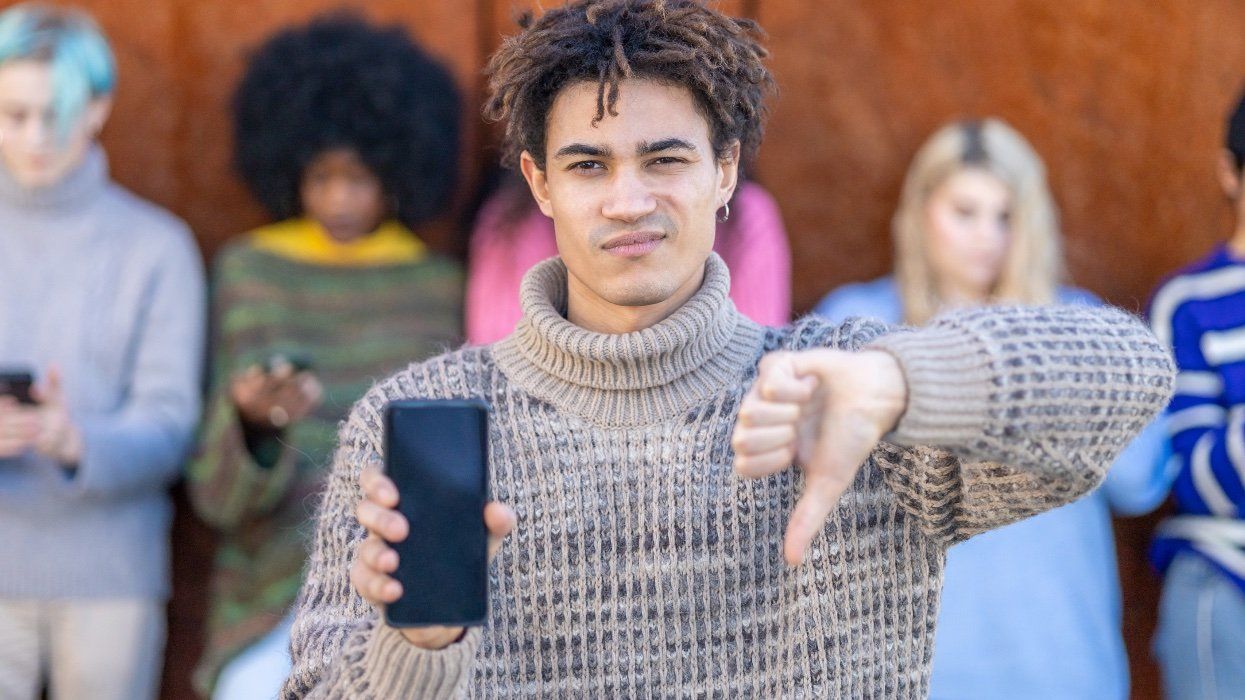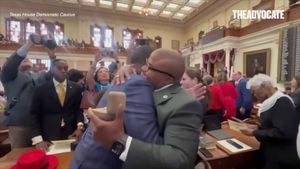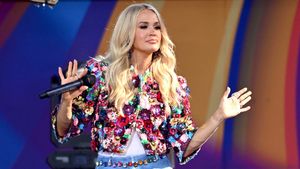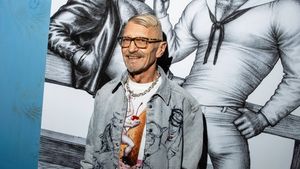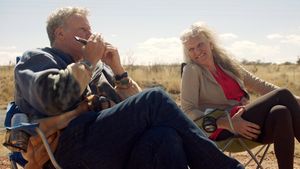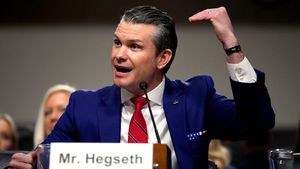Fox Searchlight's long-anticipated Battle of the Sexes is based on the true story of the epic 1973 face-off between tennis players Billie Jean King and Bobby Riggs for $100,000—and women's equality.

While 29-year-old Billie Jean King (Emma Stone) was busy becoming the highest-paid woman in professional tennis and very publically demanding equal pay for women players, Bobby Riggs (Steve Carell), a washed-up, 55-year-old tennis player turned hustler who was desperate for the limelight once again, saw an opportunity for money and fame. Riggs challenged King to a boys-versus-girls showdown of the century, but in a generation that believed women simply couldn't compete with men and therefore didn't deserve equal pay, the stakes were much higher than just bragging rights.
A highly-qualified, competent woman against an attention-seeking male chauvinist. The metaphor isn't exactly subtle in today's political climate.
It's easy to root for Billie Jean King. The casual displays of sexism and misogyny by many of the men around her who believe she's less than because of her gender are infuriating, especially considering the film directly quotes them from actual interviews of the time.
The film really gets interesting in the midst of King's championing for women's rights, when she stumbled into an illicit romance with her hairdresser, Marilyn Barnett (Andrea Riseborough), and the two women began an affair right under her husband's nose.

The two fell hard for each other, and Larry King (Austin Stowell) quickly sniffed out the affair. Instead of blowing up, he sidelines his feelings. He knew how monumental the match between King and Riggs is for women's equality and selflessly sacrificed his own feelings for her peace of mind.
While Riggs toured television networks and magazine covers, almost comedically shouting misogny for attention and notoriety, King struggled to keep her relationship with Barnett a secret from her teammates and the press. Coming forward with their same-sex romance was out of the question in 1973 and the guilt began to eat away at King, infecting her game. Eventually, she brings her relationship with Barnett to a screeching halt to focus on her true love: tennis.
(Spoiler alert! But not really, since this actually happened) Against all odds, Billie Jean King wins the match against Bobby Riggs, and $100,000, in front of a worldwide audience of 90 million people. King's win becomes a huge step forward for women in sports and equal pay.
After the game, while the stadium, her teammates, husband, paramour, and the world celebrate the win, we find King weeping alone in the locker room, releasing all of her pent-up, internalized pressure in slow, uncontrollable sobs. She collects herself and prepares to walk out into the crowd as her fashion designer/fairy godmother of sorts (Alan Cumming) knowingly grabs her shoulders: "Someday we'll be free to be who we are and love who we love. But now, it's time to join the dance."
The ending celebration leaves you hopeful and optimistic. A win for women's equality! Gays will get their day soon enough! It gets better! But to the hopelessly pessimistic, this happily-ever-after glosses over history in favor of a fairytale ending.

The film is overwhelmingly white. Even Billie Jean King herself noticed, as she noted when a panel of the film's stars were asked about Sloane Stephens's now viral $3.7 million U.S. Open Grand Slam win in a Battle of the Sexes press conference. "This is what [Billie Jean] and the original nine were fighting for," replied Emma Stone. "They were fighting for the next generation and onward to have moments like that."
"And also, she’s a woman of color. That’s one of the things we were trying to do as well," said King. "If you notice, in Battle of the Sexes, how white everything really is. I think we had two people of color in the audience. Thank God Rosie (Natalie Morales) was the announcer, or we would’ve been in big trouble."
People of color are left lagging behind on screen once again. While it's easy to say the film is simply a reflection of the time, it doesn't make the aftertaste any less bitter. When you're fighting for equal pay, yet Black and Hispanic women are hit the hardest by the wage gap, their exclusion doesn't go unnoticed. Billie Jean King's acknowledgement of the disparity with Sloane Stephen's win hints at a foresight, compassion, and intersectionality that Battle of the Sexes doesn't (or couldn't) possess.
And what about that inspiring last line of the film from openly gay actor Alan Cumming? "Someday we'll be free to be who we are and love who we love. But now, it's time to join the dance." Despite the well-meaning intention, the line seems to be telling the LGBTQ audience to patiently wait their turn for equality. The point is emphasized when you consider what happened to Billie Jean King's lover, the real-life Marilyn Barnett, an ending the film neatly sidestepped.
After a suicide attempt that left her paraplegic, Barnett filed suit against Billie Jean King in 1981 for a portion of King's earnings, claiming she "abandoned her career as a hairdresser to become a secretary, confidante, companion, cook and cleaning person 'and all other things necessary so that Mrs. King's energy could be totally directed toward playing tennis.'" King was effectively forced out of the closet to address the allegations, and it lead to a messy and damaging legal battle in the public eye.
King, who is now out and lives with her partner, is a huge social advocate for women, the LGBTQ community, and people of color, and speaks openly about moving forward as a community. But watching Billie Jean King succeed against all odds isn't quite as rewarding when she's sitting on the shoulders of people of color and LGBT people. Battle of the Sexes is a wistful fantasy of equality that can be heartwarming and inspiring, especially for white feminists, but those of us left behind might be better off rewatching a Disney classic.
Battle of the Sexes smashes into theaters today in Los Angeles and New York, and worldwide on September 29th.













































